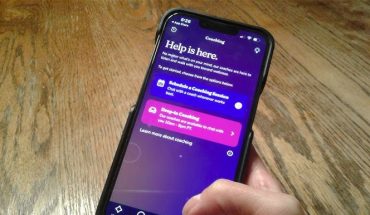AI is ubiquitous. Businesses are swarming to develop and apply AI applications, in almost every industry. Are employees just as eager to embrace AI?
I recently asked Rhonda Scharf, President, On The Right Track, and author of Alexa is Stealing Your Job: The Impact of Artificial Intelligence on Your Future about the impact or ‘threat’ of AI in the workplace.
Scharf sees AI as a huge opportunity for employees who are willing to learn and adapt to a ‘new normal’, especially for those who can increase their value in a business world eager to leverage AI. AI can be a springboard for promotion, she’d say.
 Scharf was inspired to write Alexa is Stealing Your Job to examine the impact that AI has on our lives, our livelihoods, and the business world. “As someone who specializes in efficiency, effectiveness, and people power in organizations, it was becoming increasingly obvious that people were starting to get nervous about artificial intelligence and what that would mean about their jobs,” shared Scharf.
Scharf was inspired to write Alexa is Stealing Your Job to examine the impact that AI has on our lives, our livelihoods, and the business world. “As someone who specializes in efficiency, effectiveness, and people power in organizations, it was becoming increasingly obvious that people were starting to get nervous about artificial intelligence and what that would mean about their jobs,” shared Scharf.
“I was getting questions about whether companies should be investing in their people, or just wait (right around the corner seemingly) and just replace them with AI,” described Scharf. “I wanted to be able to intellectually give them the answer that was going to help them.”
Scharf explained, “AI is able to take away a lot of the time-consuming task work that gets in the way of people adding more value to what they do. With few exceptions, everyone has too much to do and not enough time to do it. If we take away anything that can be automated and not requiring human assistance, we can then add the human touch (relationship and empathy) to things need human skills.”
“For instance,” Scharf added, “there are five hospitals in Canada right now using RIVA; a fully automated robot who helps produce chemotherapy medication (she can multi-task as she scans, weighs, and fills syringes and IV bags with dosages). This will eliminate human error, save time, and it will allow the pharmacy technicians to be able to focus on doses that are more complex to make. It allows them more time to do things that require more thought.”
Scharf also referenced how McDonald’s Canada is transforming its hiring process with AI, specifically the use of Alexa and Google. See: McDonald’s Canada Integrates Alexa and Google into Hiring Process. As well, Scharf referenced Entelo’s 2018 Recruitment Trends Reports, a survey that looks at talent acquisition trends, to demonstrate how a majority of those asked agree that AI aids productivity: “72% of respondents agreed that automated sourcing would increase their productivity.”
“Canada was the first country to adopt an AI strategy, [as outlined] in the 2017 budget,” Scharf added. “CIFAR is leading the Government of Canada’s $125 million CIFAR Pan-Canadian Artificial Intelligence Strategy, working in partnership with three newly established AI institutes – the Alberta Machine Intelligence Institute (Amii) in Edmonton, Mila in Montreal and the Vector Institute in Toronto. This initiative focuses on supporting key sectors of the new economy where Canada will lead the way, including strong support for the digital sector and AI, which opens up possibilities across many sectors—from agriculture to financial services.
So what jobs might AI take, according to Scharf?
“The jobs that are threatened are very repetitive, physical-based jobs,” responded Scharf. “They were threatened by the Industrial Revolution in the 1950s and continue to disappear. The “factory line” jobs are disappearing, being replaced by automated systems. We won’t need people to run machinery.”
“On the other hand, the opportunities are fantastic,” added Scharf. She recommended, “Find skills that are relationship- and strategic-based, that cannot be automated. Young adults have been moving toward more intellectual careers for years. AI will help you get there once we figure out where we are going. AI will be doing the work that we need to stay here.”
Scharf also advised, “Get your house set up so that you are comfortable with what it can do. Get an Amazon Alexa (Echo) or Google Home (Hey Google) and get your house running on AI. Have the lights, temperature, television, sounds, ambiance, security etc. set up and figured out. It is a great step for getting comfortable with using a Smart Speaker. It’s like your first smart phone (Blackberry or iPhone). We used it to call. Then we learned to text. Then we put an app or two on the phone to figure it out. Now we have 100 apps on our phone and can’t leave the house without it.”
“Once you realize it is designed to make your life easier, continue to expand your skill set,” advised Scharf. “Make a point to investigate what is happening in the AI world (watch the news, read articles), and catch yourself from the negativity thinking that AI is going to ruin your life. AI is going to make life easier and better.”



